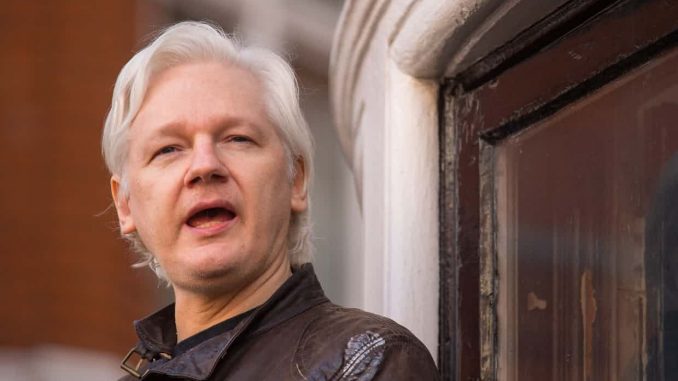
Wikileaks founder Julian Assange’s extradition to the US has been approved by UK Home Secretary Priti Patel.
Mr Assange has 14 days to appeal the decision, the Home Office said.
It said the courts found that extradition would not be “incompatible with his human rights” and that while in the US “he will be treated appropriately”.
Mr Assange is wanted by the American authorities over documents leaked in 2010 and 2011.
He has been in prison since he was removed from the Ecuadorian embassy in London in 2019 and arrested by British police, after Ecuador withdrew his asylum status.
The Australian is being held at Belmarsh prison in London after mounting a lengthy battle to avoid being extradited.
Responding to the home secretary’s order, Wikileaks confirmed that it would appeal her decision.
Mr Assange’s wife, Stella, said her husband had done “nothing wrong” and “he has committed no crime”.
“He is a journalist and a publisher, and he is being punished for doing his job.”
In May 2019, while serving a jail sentence in the UK for breaching bail, the US justice department filed 17 charges against Mr Assange for violating the Espionage Act – alleging that material obtained by Wikileaks endangered lives.
Mr Assange’s legal team claimed that classified documents published by Wikileaks, which related to the Iraq and Afghanistan wars, exposed US wrongdoing and were in the public interest.
The Wikileaks documents revealed how the US military had killed hundreds of civilians in unreported incidents during the war in Afghanistan, while leaked Iraq war files showed 66,000 civilians had been killed, and prisoners tortured, by Iraqi forces.
The Supreme Court ruled in March that Mr Assange’s case raised no legal questions over assurances the US had given to the UK about how he is likely to be treated.
Amnesty International said enabling the extradition to take place “would put him at great risk and sends a chilling message to journalists”.
“Diplomatic assurances provided by the US that Assange will not be kept in solitary confinement cannot be taken on face value given previous history”, general secretary Agnes Callamard said.
Former government minister David Davis said he does not believe Mr Assange will have a fair trial in the US.
“This extradition treaty needs to be rewritten to give British and American citizens identical rights, unlike now”, he said.
A Home Office spokesperson said that under the Extradition Act 2003, the secretary of state “must sign” an extradition order if there are “no grounds to prohibit the order being made”.
“The UK courts have not found that it would be oppressive, unjust or an abuse of process to extradite Mr Assange”, the Home Office added.
Source: bbc.co.uk






Be the first to comment